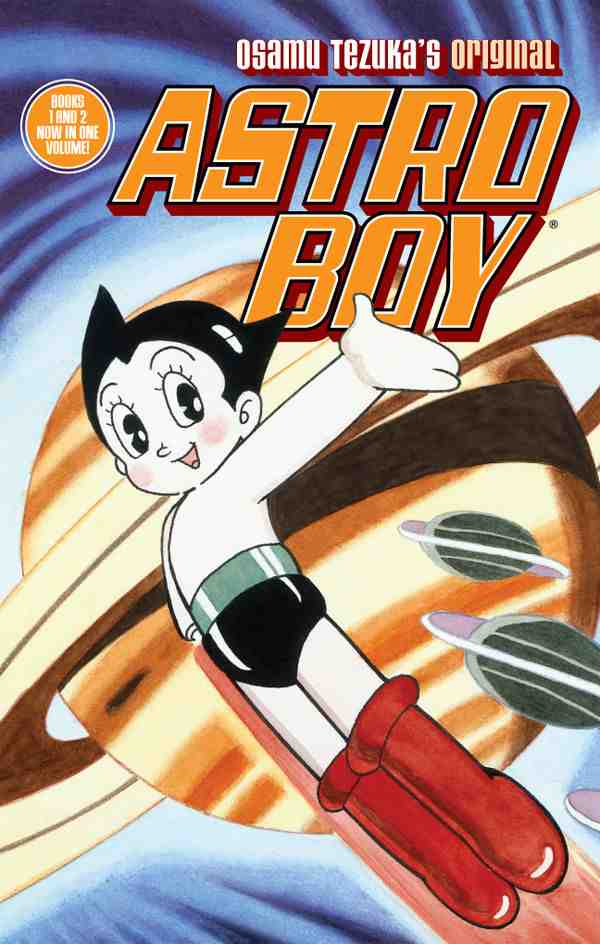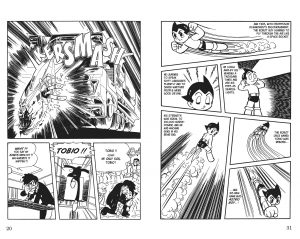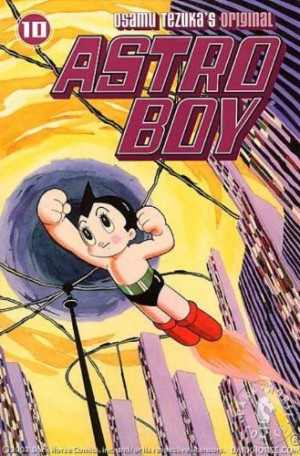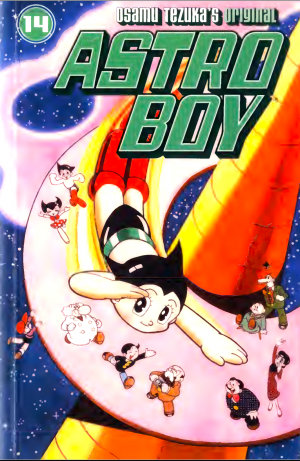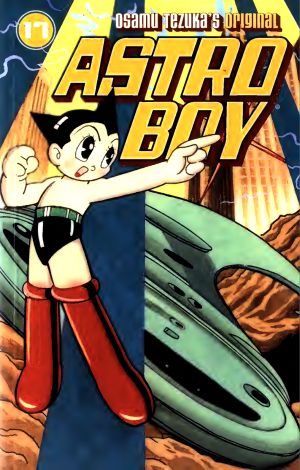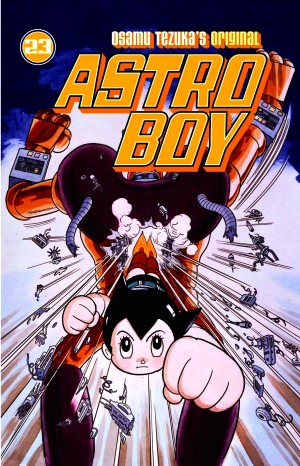Review by Woodrow Phoenix
Osamu Tezuka, often called ‘The God of Manga’, is one of Japan’s best-known creators of comics, and Astro Boy one of his most famous characters. Called Tetsuwan Atom in Japan, which actually translates to Mighty Atom, the little robot boy with the rocket feet was created in 1951. By 1961 he was the star of the first animated cartoon series in Japan, which when shown in the USA was translated into English and renamed Astro Boy. Despite Astro Boy becoming a worldwide phenomenon in the 1960s, most people outside Japan only know him from cartoons and merchandising. It wasn’t until 2002 that Dark Horse began to publish the original stories for the first time in English, translated by Frederick L. Schodt.
This bumper volume reprints Astro Boy volumes one and two in one big 420-page collection. The stories are taken from Japanese editions published from 1975 onwards, which present two decades of Astro Boy stories, personally selected by Tezuka himself in more of a ‘best of’ compilation style than chronologically. He also adds introductions and commentary to his selections, drawing himself explaining some of his thinking around the stories and how he did them. There are stylistic changes from one story to the next as the selections come from any year of Astro Boy stories from 1951 to 1975.
The first story, ‘The Birth of Astro Boy’ (1975), is a short version of the full origin which will appear in a later volume. Tezuka chose this as the best introduction to the series because it took a few years for Astro to become the character he is now.
The second story, ‘The Hot Dog Corps’ (1961), begins with a pet dog belonging to Astro Boy’s teacher being kidnapped. Astro decides to find him and encounters an army of robots who are designed to sabotage Japan’s rockets. The link between these robots and the kidnapped dog was apparently too upsettting for the original cartoon this story was based on to be shown in the USA at the time, but it’s logical and interestingly told, with lots of interstellar action, robot fights and moon exploration – and has a perfectly happy ending.
‘Plant People’, (also 1961), has Astro encountering robots who want to steal Earth’s water. It’s a short tale with the kind of classic twist ending SF authors have been writing forever, nicely inventive, simple and to the point.
‘His Highness Deadcross’, (1960), is an epic 100-pager opening with an intro from Tezuka musing on violence, which is a theme in this story. Astro Boy travels to another country, to protect the first robot to be elected president against humans who want to destroy him. There’s lots of philosophy and moral dilemmas along with villainous scientists and futuristic gadgetry. Tezuka is a great storyteller, crafting tales full of incident and cliffhangers. He manages to inject quite a lot of emotion into his stories even though the plots can be completely bizarre, and Astro himself is a blend of heroic determination and righteous innocence that can really make you care about what happens to him.
In ‘The Third Magician’ (1962), a robot magician named Kino turns into a thief, and citizens angry with dangerous robots want to change the laws to ban them from being autonomous. But can there be a reason why a good robot would suddenly turn bad?
White Planet, (1963), is about a racecar with a robot brain. After a rival team destroy it, Professor Ochanomizu intervenes to repair it with Astro’s help. The racing scenes are superbly paced in Speed Racer style, and there’s another characteristic Tezuka twist to the ending of this story which is so casually dealt with it ends up being quite disturbing.
This extra-large collection is an excellent introduction to Tezuka and Astro Boy, and worth picking up for anyone curious about the origins of manga or just interested in great comics.
